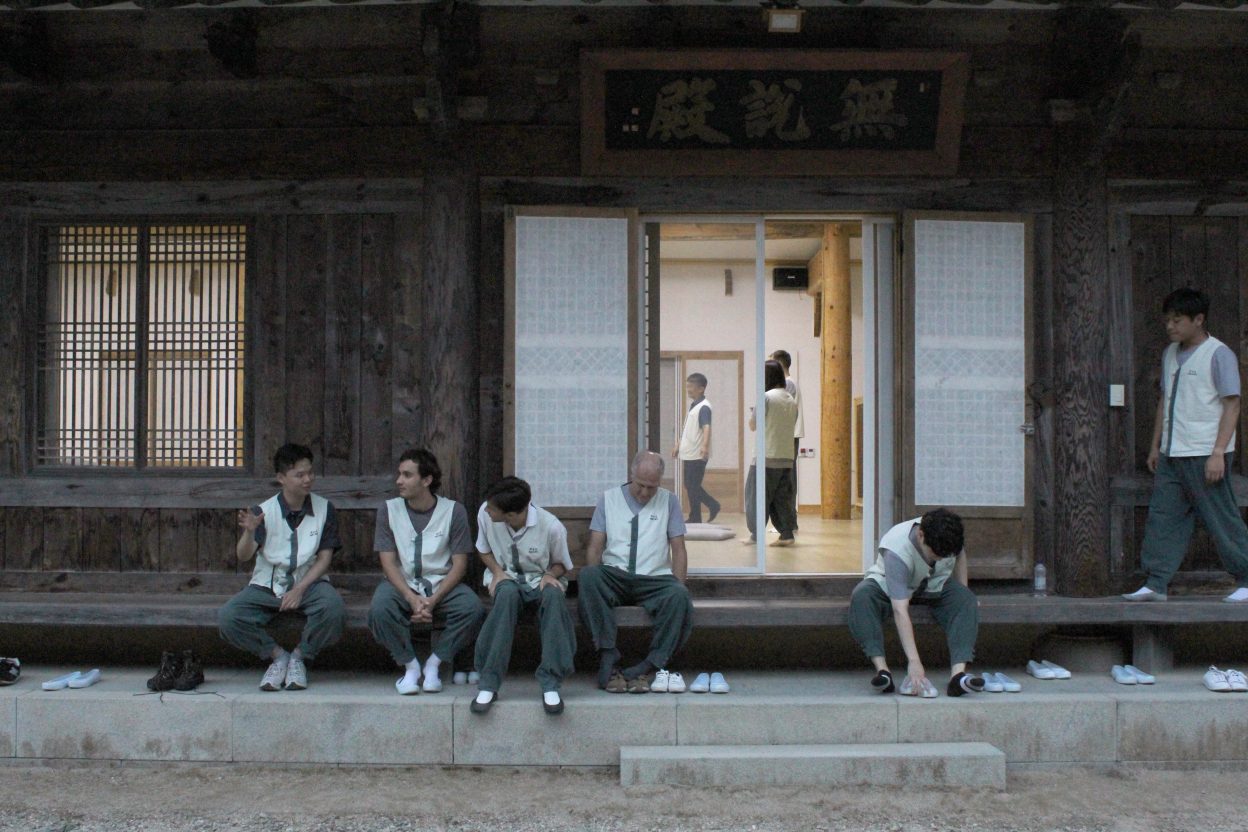OPTION JMA-FR / SUMMER + WINTER SCHOOL
Swiss-Korean academic exchange program ARC-HEST (3rd edition)
 First edition Swiss Korean Workshop 2019/20. Photo: Götz Menzel
First edition Swiss Korean Workshop 2019/20. Photo: Götz MenzelCONTENT
Attention to human comfort and performance in the built environment is growing worldwide due to the increased number of hours spent indoors and the space limitation in highly populated cities. The working environment, cultural differences, traditions and challenges of South Korea and Switzerland as well as the post-pandemic context is fertile soil to brainstorm around the built environment issues. The ARC-HEST program (Architecture for Human Environment with Smart Technologies) exchange program focuses on the synergy between architectural design, human factors, and technologies as well as their combined effects on the indoor environmental quality (IEQ) and interaction of the occupants with the building.
This exchange program is jointly organised by the smartlivinglab in Fribourg and the 3 participating Korean universities. It benefits from the support of the Science & Technology Office attached to the Swiss embassy in Seoul.
TEACHING AIMS
• Learning how to assess the performances of a building regarding comfort and occupants satisfaction through physical measurements, observations and interviews
• Understanding how and how far architectural design considerations must/can/cannot take into account requirements on the indoor environmental conditions affecting occupants satisfaction and well-being
• Experimenting the full path from a design to the practical realization and testing of a prototype (at 1:1 scale)
• Practical experience of a multi-disciplinary and multi-cultural team work, discovery of the strengths and limits of such kind of collaboration
• Increased mutual knowledge of Swiss and Korean cultures and traditions in architecture, engineering, and technology
TEACHING METHODS
The program will comprise lectures, workshops, and studios. All multi-disciplinary group work will be closely associated with visits, on-site measurement sessions, performance assessments and interviews over selected case studies. This ARC-HEST edition will focus on “Pojangmacha” (포장마차 in Korean meaning “movable market stand / wooden wagon”) that are frequently installed in streets in Korean cities.
Based on their findings over this particular type of “tiny buildings”, the groups will then develop “revisited Pojangmacha” aimed to provide a shelter for various kind of activities that can take place in the public space with a special attention put to the environmental performances, the satisfaction of the occupants and the human-building interactions. The focus will be put on the relationships between these functional features and the architectural aspects in order to better conciliate their respective requirements especially in the post pandemic era. During the winter workshop, the participants will have the opportunity to build and test prototypes of their shelters projects using the facilities of the atelier PopUp at the smartlivinglab.

